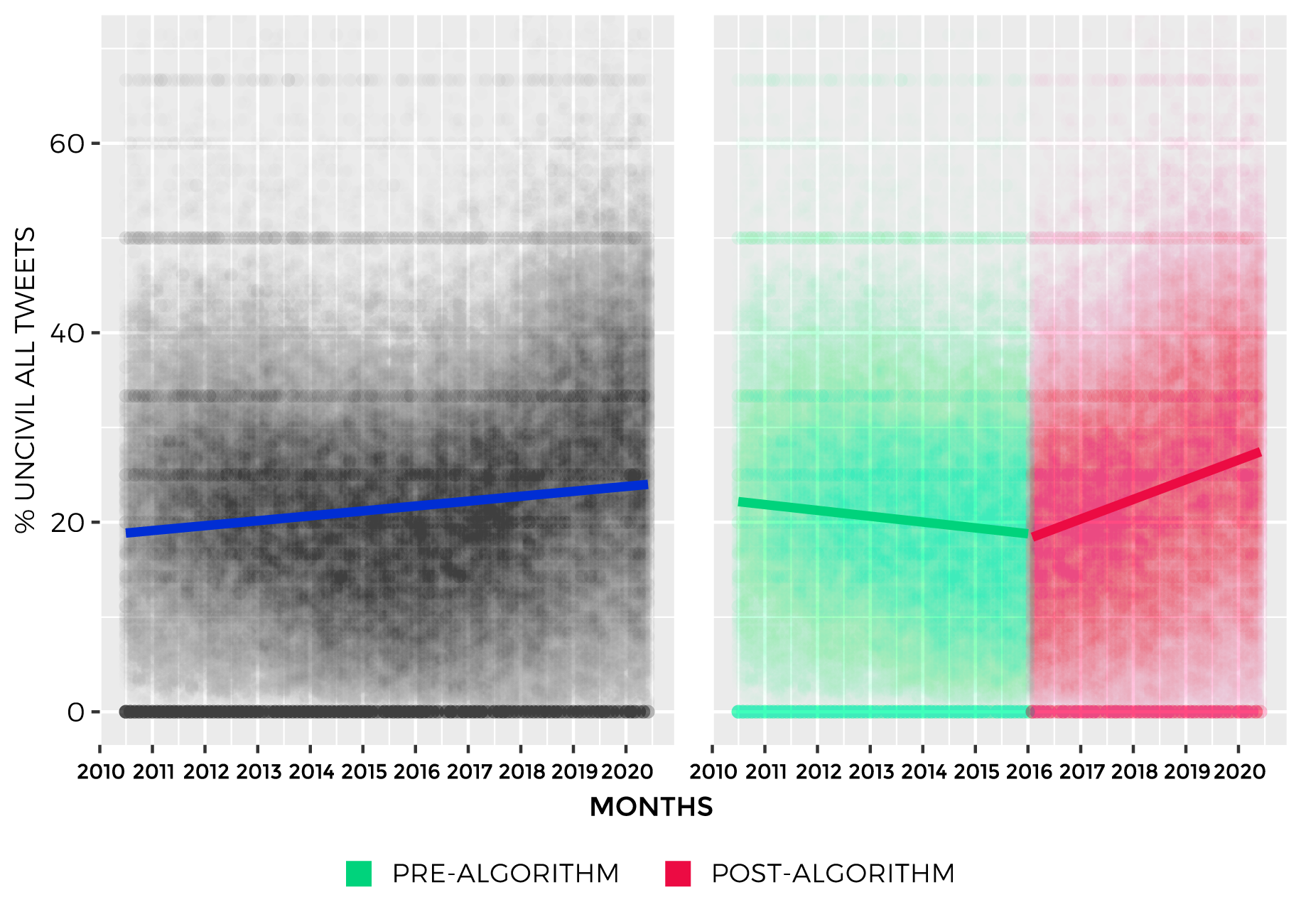
Abstract
Digital platforms are hegemonic in the modern media ecology and represent the dominant access point to today’s public sphere. Fundamentally advertising tools, platforms harvest and broker users’ attention, and so must maximise it. They leverage the surfeit of data they collect on user preferences through advanced artificial intelligence algorithms to predict the content most likely to hold a user’s attention. Research reveals the role affect, outrage and incivility play in fuelling engagement with online content; I posit “attention optimisation” promotes these. A theoretical framework for this perverse feature of platforms is proposed, conceived as ANTI-DELIBERATIVE OPTIMISATION (ADO). This process is demonstrated, including how it can lead to inflationary polarisation, or ‘POLARFLATION’. The hypothesis is tested on a large, longitudinal Twitter dataset covering every tweet (N = 22,593,965) from a panel of UK politically engaged users (n = 1,228) over the period of a decade. Twitter’s introduction of algorithmic curation in 2016 is used as a discontinuity. Supervised machine learning classifies the tweets for incivility, while a retweet typology is used as a novel instrument for algorithmic influence. I find incivility on Twitter has increased in concurrence with the introduction of algorithmic curation, estimating a 42% increase. Additionally, retweets I believe are most indicative of algorithmic influence were between 5 and 11 p.p. more uncivil than other tweets. These findings represent a significant contribution to the understanding of platforms and their consequences for the digital public sphere.

Incivility over time among UK politically engaged Twitter users, with general trendline (left) and separate trendlines for before and after the introduction of the timeline algorithm (right).
Keywords
public sphere, digital platforms, algorithms , polarisation, incivility, deliberation, attention economy
Prof Robin Mansell
This is an outstanding dissertation which easily reaches High Distinction, is publishable, and exceeds expectations for the amount of work normally expected at the Master's level.
Professor of New Media and the Internet / London School of Economics


